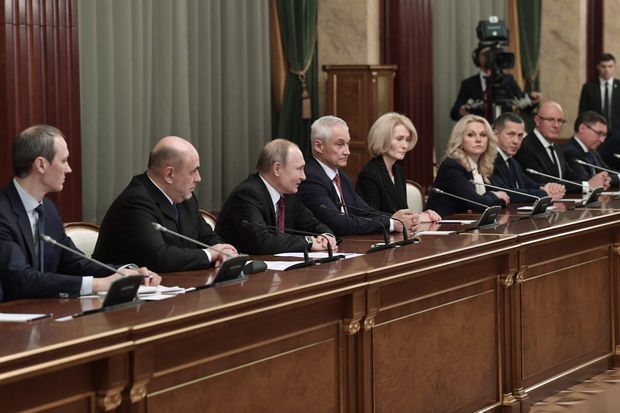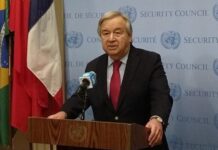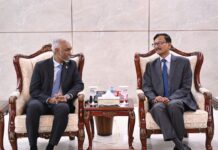MOSCOW: Russian President Vladimir Putin appointed a new government on Tuesday, less than a week after he announced sweeping constitutional reforms and his longtime prime minister resigned. Putin, who said there was a “demand for change” in his announcements last week, kept on key allies including the foreign, defence and energy ministers.
But he replaced several officials in charge of social affairs, including the ministers of health, education, labour and economic development. Putin has said the government of new Prime Minister Mikhail Mishustin should focus on boosting Russia’s economy and improving living standards.
“I sincerely wish you success… it is in the interests of the entire country,” Putin said during a televised meeting with the new cabinet. Foreign Minister Sergei Lavrov and Defence Minister Sergei Shoigu — both staunch Putin allies and key policy figures — held on to their positions, as well as the finance and energy ministers, Anton Siluanov and Alexander Novak.
The government of Putin’s longtime ally Dmitry Medvedev resigned last week, a few hours after the president announced the constitutional reforms.
Medvedev was replaced the next day by Mishustin, the little-known head of Russia’s tax service. The reforms will transfer some authority to parliament, including the power to choose the prime minister, and beef up the role of an advisory body called the State Council, potentially headed by Putin.
Critics say Putin, 67, could use that position to continue to shape domestic and foreign policy after his fourth Kremlin term expires in 2024. Mishustin promised “real changes” as he was approved by parliament last week, echoing language Putin had used in his state of the nation address announcing the reforms.
Medvedev’s approval rating collapsed in recent years as the economy stagnated and Russians saw a drop in their disposable income. Putin has put forward a slew of plans to reboot the economy and improve living standards, including a series of “national projects” and increased payouts to families.
The national projects — which include huge investments in infrastructure, the digital economy, education and health — are expected to cost an estimated USD 400 billion (360 billion euros) by 2024.
Mishustin, who had led Russia’s Federal Tax Service since 2010, is seen as an effective and efficient administrator without his own political ambitions. Opponents have accused Putin of rushing ahead with the constitutional reform plan after he presented the amendments to parliament on Monday, only a few days after announcing them.
Kremlin spokesman Dmitry Peskov on Tuesday insisted the Russian public will have a chance to evaluate them. “There will be a mass discussion of the proposed amendments, a mass information campaign and discussion will be happening,” he told journalists.
The State Duma lower house is expected to vote on the first reading of the bill on Thursday. It is not clear how the government plans to organise the national “discussion” and a promised vote on the amendments, which some reports said could happen as early as April.
Top Kremlin critic Alexei Navalny has accused Putin of trying to use the reforms to be Russia’s “leader for life”, but the opposition has struggled to come up with a concerted plan to oppose the reforms. As part of the shake-up among top officials, Putin also on Monday removed the powerful prosecutor general, Yury Chaika — who took office in 2006 — and nominated a replacement. AFP







